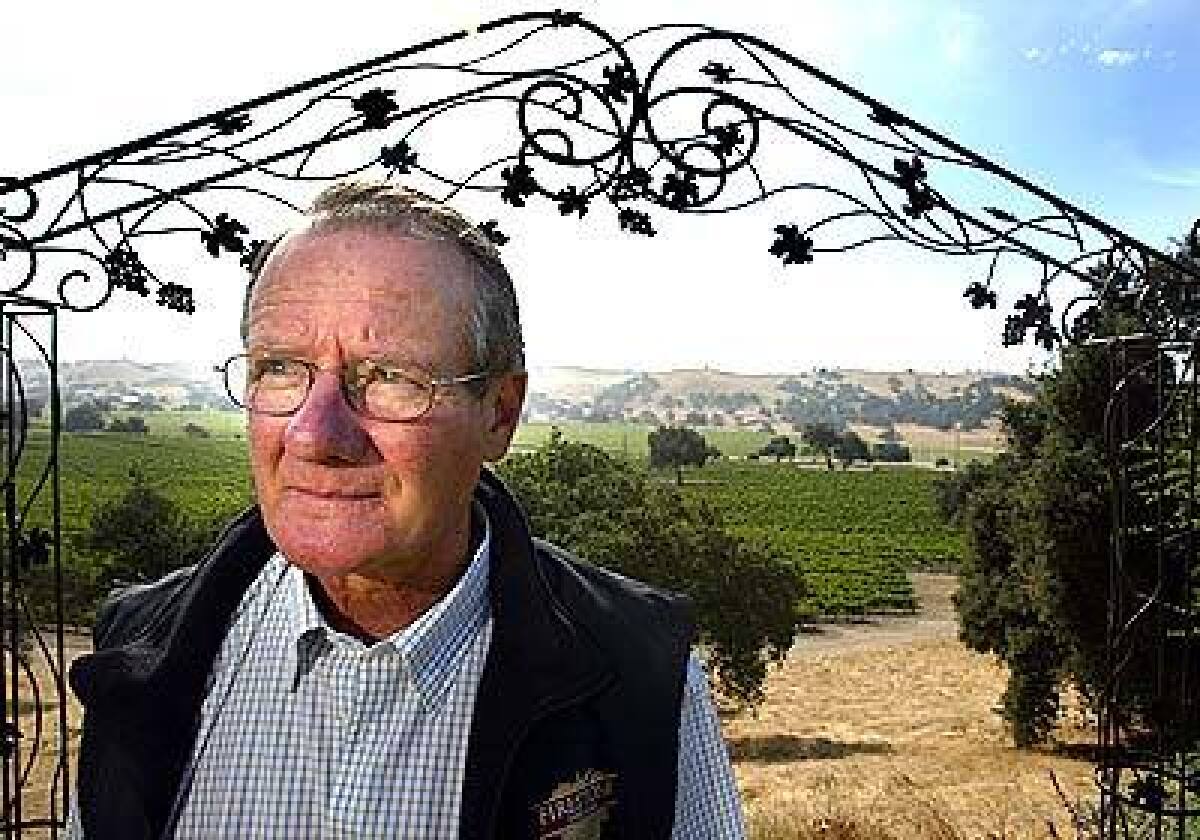Incoming Supervisor No Backer of Tribe’s Plans

SANTA YNEZ, Calif. — Chumash Indians here tried to run Santa Barbara County Supervisor Gail Marshall out of office last year by actively supporting her recall election and again in March by demanding her resignation, accusing her of making derogatory remarks about the tribe.
Marshall, a liberal Democrat whose stepson is married to a Chumash member, has criticized the tribe for using its sovereign powers to run roughshod over local zoning laws and land-use requirements. She has accused tribal leaders of responding to community concerns by donating millions of dollars to nonprofit groups. And she has ridiculed tribal members for not making the most of their casino profits.
“When you get $300,000 a year for sitting on the couch, watching a Lakers game, not working, you model that lifestyle to the next generations,” she was quoted as telling a UC Santa Barbara law instructor in a book published this year.
Now that Marshall is leaving office in January after three terms, Chumash leaders say they are looking forward to working with her successor, Republican Brooks Firestone.
But Firestone, who has a reputation as a fence mender, remains fervently opposed to the tribe’s expansion efforts. As a member of the California Assembly in the 1990s, Firestone refused to back the tribe’s request to build a parking lot across the street from the casino. “I told them, frankly, I couldn’t support them,” he says. “It’s just not in keeping with the [Santa Ynez] Valley.”
The 68-year-old moderate was dead set against the tribe’s new casino resort, calling it contrary to the restrictive land use in the area.
Firestone came out against the tribe’s application for a permit to serve alcohol in its upscale restaurant. His family operates one of the larger wineries in the area, and his sons recently opened a restaurant and brewery in nearby Buellton.
“I am worried about a replication of Las Vegas in every regard,” Firestone says. “It would be better not to have alcohol as well as gambling and the restaurants and everything.”
He also opposes the tribe’s plans to build a museum, cultural center and retail complex on a 6.9-acre lot near the casino resort.
“People don’t want commercial development on both sides of a rural highway,” Firestone says. “It looks to me like that is going to be a bottleneck right there.”
After a dozen years in the family tire business, Firestone moved to Los Olivos in 1972 to open the first estate winery in the Santa Ynez Valley.
“I’ve paid my dues,” he says in his airy office surrounded by grapes growing on his family’s ranch. The walls are plastered with photos of Firestone with past Republican presidents.
In all his years in business and politics, Firestone says, he has never seen a community become as angry over a development issue as locals have over the tribe’s plan to build several hundred homes on 745 acres of farmland. To date, Firestone has received more than 600 letters opposing the deal.
Firestone says he knew his position on the plan the minute he read about a proposed partnership between the Chumash and Fess Parker, the former actor who played Davy Crockett.
Firestone’s first reaction: “Uh-oh! I recognized the problems and the anxieties and the controversy immediately.”
He adds: “It is ranchland going into a hotel and housing development. That does not work. It is simply not an appropriate use of that land.”
Tribal chairman Vincent Armenta says he is disappointed that Firestone has rushed to judgment on a piece of property that the Chumash have not yet purchased.
“I would think he would give us the courtesy of sitting down and discussing it before he makes a decision,” Armenta says.
Chumash leaders acknowledge they are wary about Firestone’s past dealings with the tribe. They question why, after soliciting their political support in the March election, Firestone snubbed the tribe by refusing to publicly announce its endorsement.
Firestone says there was a “misunderstanding” about his request for support. Although he wanted the votes of individual tribe members, he thought a formal endorsement would not help his candidacy.
“They felt I should highlight their endorsement,” he says. “I didn’t want to do that. There are lots of people that, frankly, I’d love their vote but I wouldn’t want their endorsement. They know that. It wasn’t a big deal.”
Firestone says he has nothing against the tribe and wants to help the Chumash understand “what they’ve gotten themselves into” in proposing a project that threatens the surrounding agricultural landscape.
“This is not a personal thing,” Firestone says. Tribe members feel local residents don’t like them, but “it’s not that. It’s far more objective.”
In Firestone’s view, ranch owners in the valley realized long ago that strict land-use ordinances prohibited them from turning ranches into subdivisions like other communities in Southern California.
“Every one of us who owns property here has played by the rules to our financial detriment,” he says. “The rules are tough. And here comes along an entity that doesn’t have those constraints. That’s concerning, naturally.”
More to Read
Sign up for Essential California
The most important California stories and recommendations in your inbox every morning.
You may occasionally receive promotional content from the Los Angeles Times.










